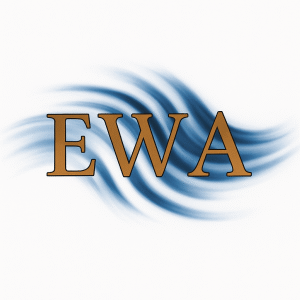When it comes to Financial Planning Retirement Tips, the biggest question is, “Do you have any retirement savings?” Asking that question today gets a far different answer than asking that question 10 years ago.
In yesterday’s world, most companies offered pensions and 401k matching. It was common for a company to not only offer a 401k, but also match it. The usual match was 6%. That’s 6% free money! Plus, whatever gains it produced over the years. Once again, Free Money!
This post contains affiliate links. If you purchase through them, we may earn a small commission at no extra cost to you.
- When I say 401k, I’m referring in general to any type of retirement savings account, 401k, 403b, Roth, etc.
Financial Planning Retirement Tips – Ready?
Table of Contents
Times Have Changed
We’ve been going through a transition over the last few years.
A transition that benefits companies more than employees. Health benefits are not being covered after retirement by some companies. Health insurance that used to be filled with $20 co-pays and prescription drug coverage are now High Deductible plans. Employers and Insurance Companies have now found a way to make “Preventative” procedures no longer “All Inclusive”. You may have seen that you received a bill for lab work that wasn’t 100% covered. I sure have.
Maybe most concerning of all, Pensions are few and far between now. I could easily imagine 10-20 years from now, they might not exist at all. That’s the direction we’re headed.
All these things bring to light the importance of planning for your future. Not planning ahead could be a critical mistake!

What does “YOUR” future look like?
You could plan on working for the rest of your life. How’s that sound? I didn’t think so! It could be a reality though. You could have to keep working until at least age 65. At that point you would at least have Social Security and Medicare. If Social Security still exists, which I believe it will.
Financial Planning Retirement Tips: Home Ownership Statistics
Source: U.S. Census Bureau claims only about 65% of the people in the United States are homeowners. That statistic hasn’t even mentioned that some, or maybe even most of those homeowners have a mortgage. That mortgage is an expense.

Now consider the 35% that are paying rent, or some other arrangement other than owning a home. It’s Expense! Health care, utilities, car payment, subscriptions, are all Expenses!
How will these people survive without some source of retirement income?
With inflation on the rise and the indication that most people still have considerable expenses, it’s logical to assume their nest egg will have to be substantial to even consider retirement. According to the U.S. Bureau Of Labor Statistics, the average yearly income in the U.S. is $56,940 as of 2023.
Additional Resource: Health and Wealth Meaning – More Than Money!
Yahoo Finance statistics
Most Americans are not saving enough for retirement. According to the survey, only 14% of Americans have $100,000 or more saved in their retirement accounts. In fact, about 78% of Americans have $50,000 or less saved for retirement.
But what’s more concerning is the number of people who haven’t saved anything yet. Nearly 37% of respondents indicated they haven’t started saving for retirement at all.
These statistics concern me. They show that not enough people own a home or make a substantial salary. On top of that, they have little to none saved for retirement. It’s actually a bit scary because unfortunately we are all getting older and there will come a time for all of us that health issues will arise.
If you currently are not participating in a 401k or IRA, you need to be! You have to look beyond today and think about tomorrow. A savings account isn’t enough. Plus, you’re not going to get an interest rate that compares financially to a retirement account. Not even close!
Additional Resource: Brain Health After Retirement – Body Health Tips!
Financial Planning Retirement Tips: What Can You Do?
My strongest recommendation is to be Invested in a 401k or IRA. This money is not accessible without penalty until you are age 59 1/2. The penalty for early withdrawal is 10% (in addition to income taxing), making it less likely to be withdrawn from. Plus, if invested wisely, it can earn and grow year after year.
Big plus- The money you contribute before taxes is Non-Taxable. Meaning you don’t pay taxes on it until you withdraw it.
Note: the rules are different on a Roth IRA where you make contributions with money that’s already been taxed.
If you’re older and wish to be concerned less with surviving a struggling market, I recommend a conservative approach to lessen risk. There are many less aggressive investments choices out there. A good Financial Planner can help guide you.
If you are (10 years or more from retirement), you could invest more aggressively should you choose. This decision is absolutely your choice. I went aggressive the entire time I was working but went more conservative after I retired. This keeps my portfolio growing (a little slower) but minimizes the risk of its stability in the market.
My Strongest of Financial Planning Retirement Tips
Invest with your employers 401k and contribute as much as possible. Hopefully there’s an employer match program. If your employer does not offer a 401k, there are plenty of options available for an IRA such as Fidelity Investments.
The earlier you start, the better.
IRA Options
- Fidelity Investments
- Charles Schwab
- SoFi
- Edward Jones
- Vanguard
- J.P. Morgan
- Janus Henderson
Financial Prison: Breaking the Chains that Bind You
I’m sure many of you are in this common position. Too much debt to retire. Your house isn’t paid off. Your car isn’t paid in full. You’re consumed with credit card debt. All of these are legitimate reasons that prevent retirement.
Focusing on managing your debt is crucial when considering retirement. After all, our biggest fear is running out of money. A strong consideration should be (to the best of our ability) getting as much debt as possible housed under one roof. This allows us to more efficiently manage our finances.
Here are some strong additional resources to consider:
Credit Card Debt Consolidation Programs – Your New Future Awaits!
Poor Credit Debt Consolidation – Credit Repair Services Reviews

Financial Planning Retirement Tips: In Conclusion
I can’t emphasize strongly enough the importance of having a 401k or IRA and the sooner the better. If your employer will match your contribution, take full advantage of that free money.
According to Marca.com, If you contribute 5,000 dollars per year to a Roth IRA and earn an average annual return of 10 percent, your account balance will be worth a figure in the region of 250,000 dollars after 20 years.
At $5000/year X 20 years= $100,000 that you contributed. Portfolio value= $250,000. That’s $150,000 profit. I want to be clear here. These numbers are not guaranteed. They are based on past history and assumption to serve as an example.
When you consider inflation, expenses, health care, etc. it provides you with the security of a comfortable life after retirement. Retirement is supposed to be the “Golden Years” for a reason. You’ve done the work, now it’s time to reap the rewards.
Thanks for reading, we look forward to your visit to EliteWealthAffiliates.com for more posts designed in Helping you enhance your Health, Wealth, and Happiness!

